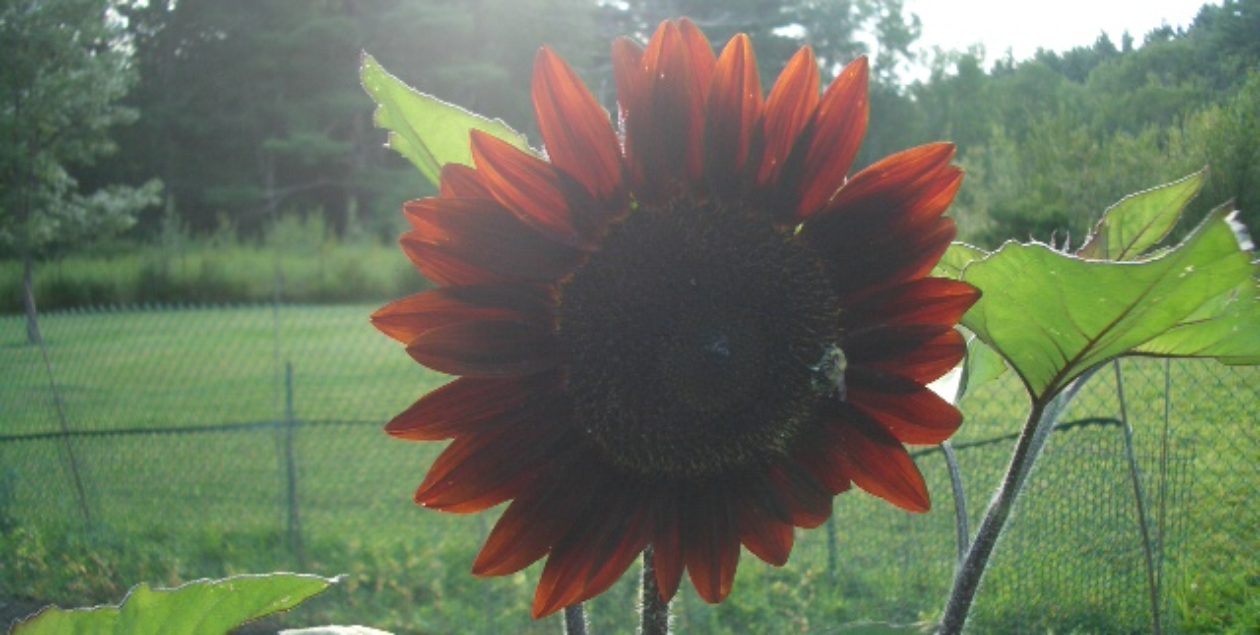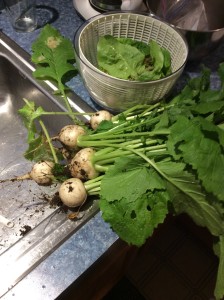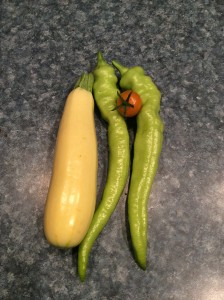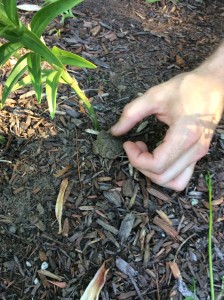We have always ordered our seeds from Pinetree seeds, in Maine. We like them because they are a small company and they promote seeds with a good germination rate. On the few occasions that the seeds do not do well, Pinetree either replaces your seeds or refunds your money. We’ve noticed that when we let them know about a problem, it is probably not limited to us because those types of seeds often disappear from the following year’s catalog.
Last year we ran into our first case of strange vegetables. We had ordered more of the Mr. Big Pea and decided to try Sugar Snap peas as well. We very carefully planted the seeds in specific rows, one type at a time. The plants came up, and we had a mix – some were the Mr. Big Pea (shell peas), others were just Sugar Snap (pea pods.) Literally from one plant to the next they could be different. We investigated – peas can cross-pollinate. Lesson learned – we shrugged it off, ate what we liked, and froze the rest (mostly the pea pods.) I had the thought of using them in a stir fry; I think we still have a few bags, a year later. Clearly not popular with us.
This year something’s going on with the squash. We’re growing yellow squash and zucchini; they are in the same area. One yellow squash plant is producing these:
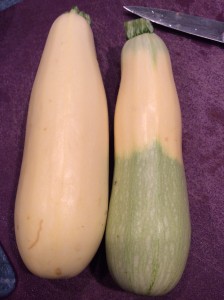 Now, you would think that it’s a cross-pollination issue, right? Except that there is a type of squash that looks just like that, called a Zephyr squash. We know this, because we grew it two years ago. It was not a particularly disease-resistant plant, so we only grew it that one year. So it could be cross pollination (both types of plants are in the same area) or it could be a Zephyr squash plant. Which is essentially a cross-pollinated summer squash/zucchini whose seeds are saved.
Now, you would think that it’s a cross-pollination issue, right? Except that there is a type of squash that looks just like that, called a Zephyr squash. We know this, because we grew it two years ago. It was not a particularly disease-resistant plant, so we only grew it that one year. So it could be cross pollination (both types of plants are in the same area) or it could be a Zephyr squash plant. Which is essentially a cross-pollinated summer squash/zucchini whose seeds are saved.
Maybe we should start our own seed company with the offspring of all of our mistakes.
